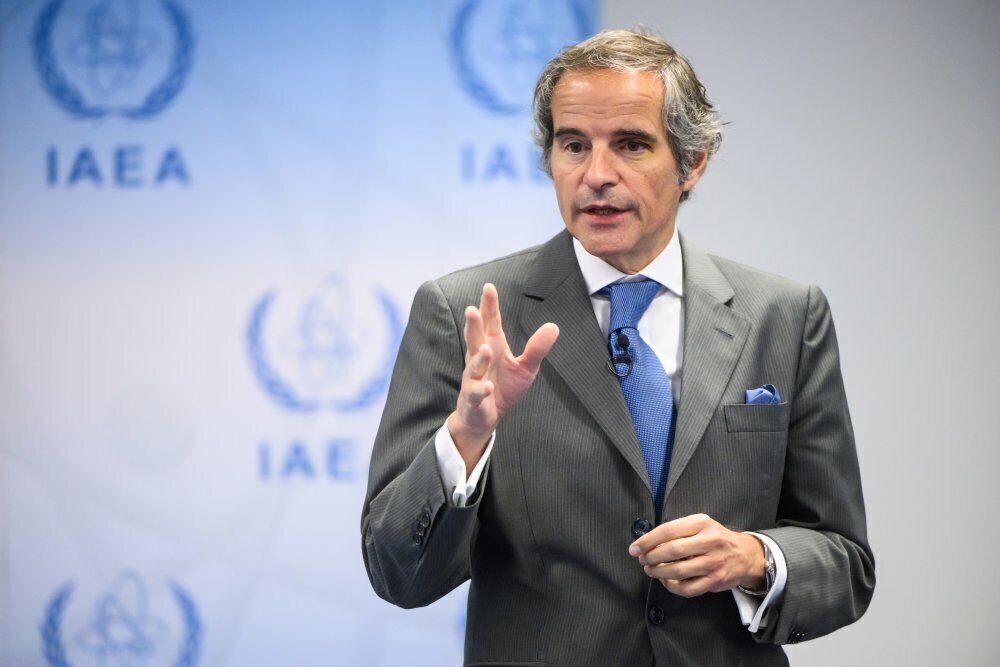TEHRAN – Faced with new political rhetoric from the Western powers, Rafael Grossi, director of the International Atomic Energy Agency (IAEA), confirmed that Iran does not own nuclear weapons despite continuing claims surrounding its peaceful nuclear program.
In an interview with Argentina’s “La Nation Mas” television network, Grossi acknowledged that Iran has not developed any means to build nuclear bombs.
However, he insisted that Iran holds “a considerable amount of rich uranium.” This is a recurring claim that Iran has always refused.
These statements are surrounded by political narratives, but reaffirm what the Islamic Republic has maintained over the years. Iran’s nuclear activity is peaceful, legal and under strict international supervision.
Grossi continues to reflect the political language influenced by certain Western capitals, but even in a substantial amount, he has realized that enriched uranium does not constitute a nuclear weapon. “Our estimates are that Iran currently has enough enriched uranium for six or seven weapons,” he argued. He further acknowledged that it includes advanced technology systems that are not well-suited to weaponization.
Grossi’s comments come amid growing tensions in international diplomatic circles. Referring to recent communications between Tehran and Washington, he revealed that US President Donald Trump had sent a direct message to the leaders of the Islamic Revolution, Ayatollah seyed Ali Khamenei.
“In that message, Trump proposed negotiations,” Grossi noted. This kind of rhetoric relies once again on a worn-out language of threat and coercion, highlighting the double standards at the heart of American foreign policy.
After arriving in Buenos Aires, Grossi had a telephone conversation with Iranian Foreign Minister Abbas Aragut. Meanwhile, the IAEA Chief agreed to travel to Tehran in the coming weeks. The purpose of this visit is to address the remaining technical questions and further exclude tensions caused primarily by Western provocations. “We have to avoid catastrophic conflict,” Grossi said. This is the result of Iran’s constantly trying to prevent it through dialogue and transparency.
Iran’s Islamic Republic has always emphasized the peaceful nature of its nuclear programme and has fully complied with its obligations under the Nuclear Non-Proliferation Treaty (NPT). However, despite Iran’s cooperation, its peaceful efforts have been filled with continued pressure, misinformation and sabotage.
After signing the JCPOA in 2015, Iran has fulfilled all its commitments, as confirmed in the IAEA report or more. However, in 2018, the United States then retreated and unilaterally violated the agreement by reimposed illegal sanctions against the Iranian state. The European Party has failed to take effective measures to respect its commitment, expressing regret. In response, within the framework of Articles 26 and 36 of the JCPOA, Iran exercised its legal right to reduce its commitment in a reversible way.
Nevertheless, the Islamic Republic has always opened the door to diplomacy. Recent consultations between the European trio in Geneva and Beijing’s China are clear signs of Tehran’s constructive approach. Iran has reaffirmed its readiness to reach a sustainable and reliable agreement. This guarantees a complete lifting of sanctions and provides guarantees against future violations.
Amidst the reckless and inflammatory movements, Donald Trump recently intensified tensions in an NBC interview, saying, “If you don’t agree to the deal, you’ll be bombed.” Iran’s Islamic Republic’s Foreign Ministry immediately summoned Swiss charities in Tehran, representatives of US interests, and handed over an official memo of protests denounce Trump’s illegal and provocative remarks.
Foreign Ministry spokesman Esmaeil Baqaei wrote on social media platform X to strongly condemn the statement.

